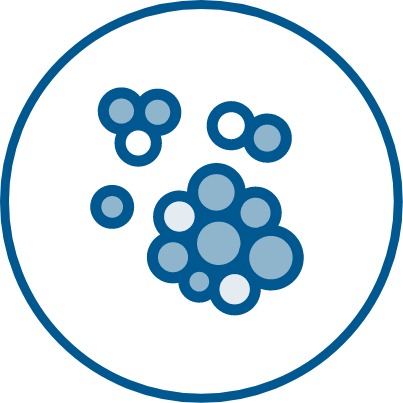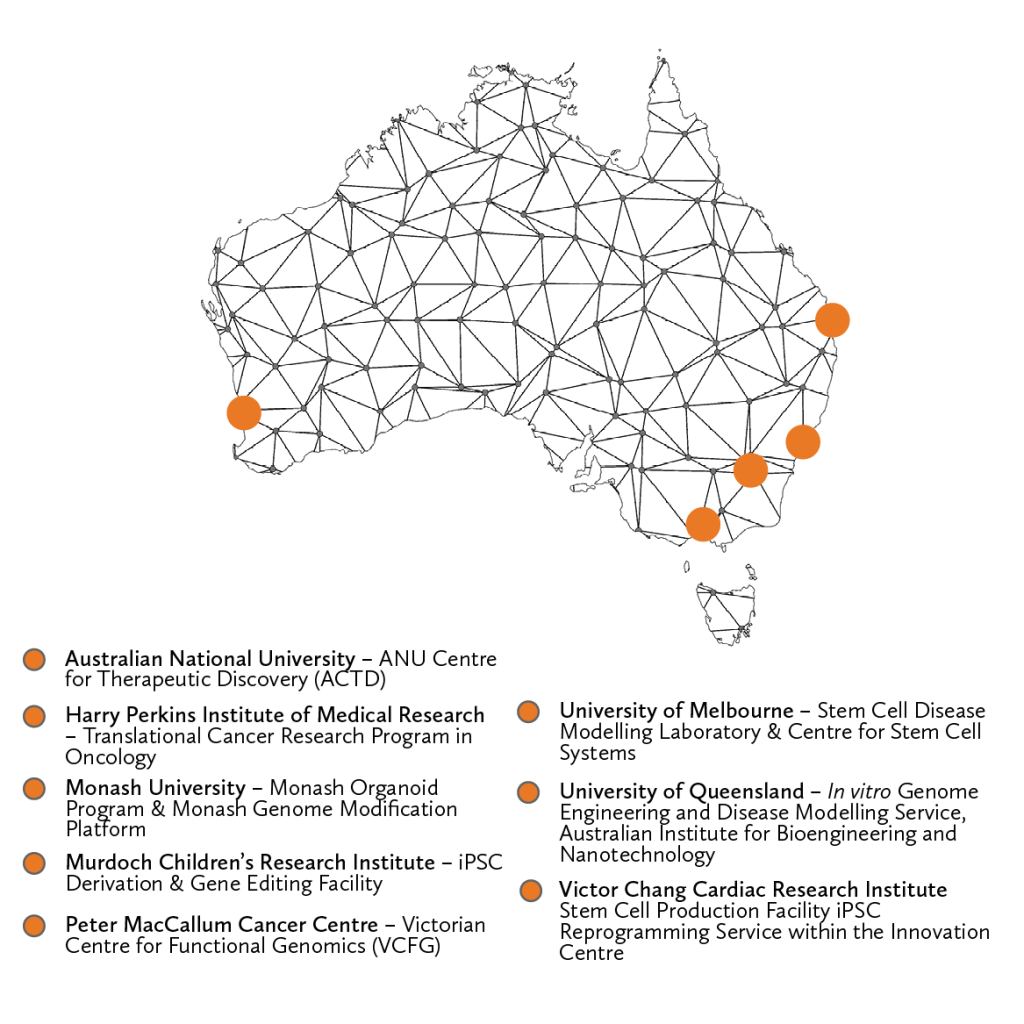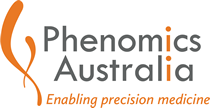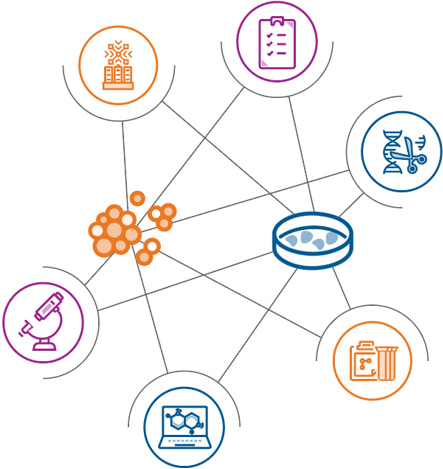
In vitro Genome Engineering & Disease Modelling
To complement our established in vivo capabilities, and address an important capability gap for the research community, Phenomics Australia is actively expanding our range of in vitro engineering and disease modelling system to include cell-, organoid- and tissue-based models, as well as 3D bioprinting.
Expertise

-

3D bioprinting
-

CRISPR in cells
-
Organoids
-
Human iPSCs
-
Patient-derived lines
-
High-throughput imaging and screening
-
Stem Cell Registry
-
Training, consultancy and technical support
Explainer
Like our established in vivo capabilities, in vitro genome engineering and disease modelling involves the generation of tailored models which can possess targeted mutations of interest and which can replicate clinical findings. These models are an increasingly valuable tool for health discovery and the early trialling of prospective therapies. Models on offer can be genetically engineered using our established CRISPR technologies, and also spatially engineered using 3D bioprinting to replicate natural physiology.
Services
This platform enables highly complex co-culture interaction studies, including tumour and immune cells, host-pathogen interactions, angiogenesis and cell invasion. Using our Janus G3 robot and our Rastrum bioprinter, cells of interest can be embedded in customised hydrogels (bioinks) of varying composition and stiffness in both 96 and 384 well format. We can currently perform large and small scale compound screening coupled with sophisticated imaging in label-free and fluorescent settings.
The CRISPR technology enables the production of a number of mutations not previously possible using conventional gene targeting. We can generate knock-out, knock-in, point-mutated and tagged versions of your favourite gene in a wide variety of both human and mouse cell lines. We currently offer use of our proven cell lines and we are happy to consider others as projects require.
Organoids are 3D multicellular clusters derived from organs or stem cells, which can renew and self-organise into structures resembling the tissue of origin. Phenomics Australia supports on-demand organoid production across a broad spectrum of human disease, cancer subtypes, tissue-microbe interactions and drug responses, genome engineering, screening, phenotyping and biobanking.
iPSCs are human induced pluripotent stem cells, typically generated from blood or skin from consenting individuals, that can be differentiated into most tissue types., Phenomics Australia supports on-demand iPSC production (including large-scale iPSC cohorts, robotics for automation), genome engineering (with a unique simultaneous reprogramming and gene editing workflow, permitting efficient, rapid and cost-effective generation of gene-edited iPSCs using CRISPR and next-generation editors), screening, phenotyping, and biobanking in a multitude of disease models and with both discovery-based screens for disease biomarkers and clinically-relevant precision medicine approaches.
Phenomics Australia supports the generation of patient-derived lines from cohorts to support 2D and 3D disease modelling and therapeutic development in Australian laboratories.
Phenomics Australia supports the generation of sophisticated image analysis algorithms and methodologies. The generation of organoids and iPSCs together with associated screening and imaging capabilities means research will more readily be able to model a wide spectrum of human diseases, screen for drug responses and quantitate tissue and tumour heterogeneity, thereby improving the prediction of patient responses to standard of care and trial drug combinations.
The Australian Stem Cell Registry will create a searchable database of pluripotent cell lines available in Australia. Linking those cell lines with the laboratories that made them, and assisting researchers understand the provenance of and access to those lines will allow rapid partnerships between researchers interested in specific disease models.
Phenomics Australia provides training, consultancy, guidance, and technical, grant and intellectual support, for the establishment of adequate cell differentiation assays suited to the various needs of the end-users in a supported-hub model.
Click on a title from the infographic below for more information and links.
Further Information
Phenomics Australia provides a national centre of expertise and service provision to deploy a more comprehensive and sophisticated range of in vitro Genome Engineering and Disease Modelling capabilities to understand the functional consequences of DNA sequence variation in the human genome for health and disease while maintaining the expertise for in vivo disease modelling and genome engineering. To meet the high demand for adaptable and scalable disease-modelling platforms for improved diagnosis, Precision Medicine for genetic disorders, and therapeutic development by both academia and the biopharmaceutical industry, Phenomics Australia offers In Vitro services through a collaborative consortium of ten laboratories and facilities across Australia, operating at ANU (ANU Centre for Therapeutic Discovery), Perkins (Translational Cancer Research Program in Oncology), Monash (Monash Organoid Program & Monash Genome Modification Platform), MCRI (iPSC derivation & Gene Editing Facility), Peter Mac (Victorian Centre for Functional Genomics), UMelb (Centre for Stem Cell Systems & Stem Cell Disease Modelling Laboratory), UQ (In vitro Genome Engineering and Disease Modelling Service), and VCCRI (Stem Cell Production Facility iPSC Reprogramming Service)


